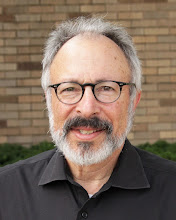Our first day in Poland was, of course, taken up to a certain extent merely with arriving. After settling into our hotel in the early afternoon, we went out for a tour to Warsaw’s Old Town, also stopping on the way to see a monument to the Warsaw Uprising (not to be confused with the Warsaw Ghetto Uprising, which happened a year earlier). It is a reminder that the Poles suffered a great deal over the years as well. As our scholar, Union College historian Steven Berk, who is traveling with the group, pointed out in a lecture later that day – the Poles have many things in common with the Jews. In any case, it occurs to me that we often discuss the Holocaust as if we were the only ones who suffered it. 6 Million Jews died. 12 Million people died. The fact that half the victims were Jews is appalling. But the fact that very few Jews seem to ever think about the 6 million others is unfortunate.
In the afternoon, we visited Bet Warszawa – the seat of the Warsaw Liberal Jewish community. Its Rabbi, Burt Schuman (formerly of Altoona, PA) was quite adamant about the importance of this community to the rebirth of the Polish Jewish community. The official synagogue, the Nosyk Synagogue, is an Orthodox synagogue, administered by Rabbi Michael Schudrich, Chief Rabbi of Poland – ironically trained at JTS. (I knew his brother, Nathaniel Schudrich, a cantor who also studied at the Seminary.) In any case, Bet Warszawa IS growing since my previous visits. It has 200 families associated with it, gets a regular turnout of 40-60 for Shabbat, and has morning minyan on Mondays and Thursdays – and has not failed to muster a minyan in longer than our home synagogue. 95% of its members are native-born Poles. And this is a complicated matter: many of the Poles drawn to Judaism are people who have discovered that they had Jewish roots – or that they are biologically Jewish – but their parents or grandparents have hidden this news from them until recently. Why? In the older generations, some were Jewish children adopted by non-Jews – and never told the truth about their origin. This may seem cruel – but remember that until the fall of the Communist regime in 1968, it was still dangerous to be a Jew. Many Jews were pushed out of the regime in the 20 years leading up to that time, and anti-Semitism was quite rife during that time. Additionally, Jews were blamed to a certain extent for the Communist regime, because a significant number of Jews had always been behind Communism and involved in it. Furthermore, dating back to World War II and the Holocaust, the Jews had (quite reasonably) welcomed the Soviet Army as greatly preferred to the Nazis – but in the eyes of many Poles, this made them seem disloyal to the Polish state.
Many of these Poles who discover their Jewish origins are interested in tiptoeing into the Jewish community – finding out more about it; then, possibly joining it formally. But as Rabbi Schuman points out, if the only alternative is the Orthodoxy of the Nosyk Synagogue, they are unlikely to make the journey.
Thursday, July 2, 2009
Subscribe to:
Post Comments (Atom)

No comments:
Post a Comment